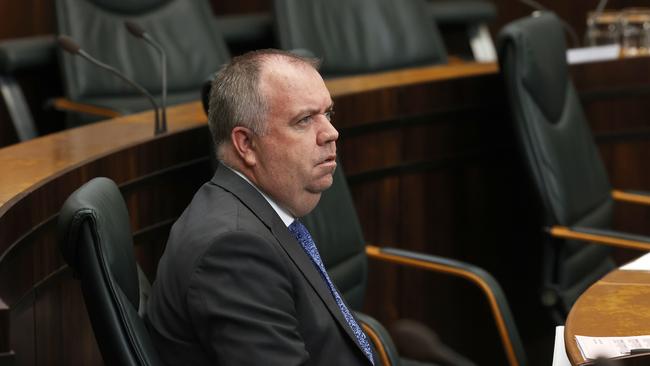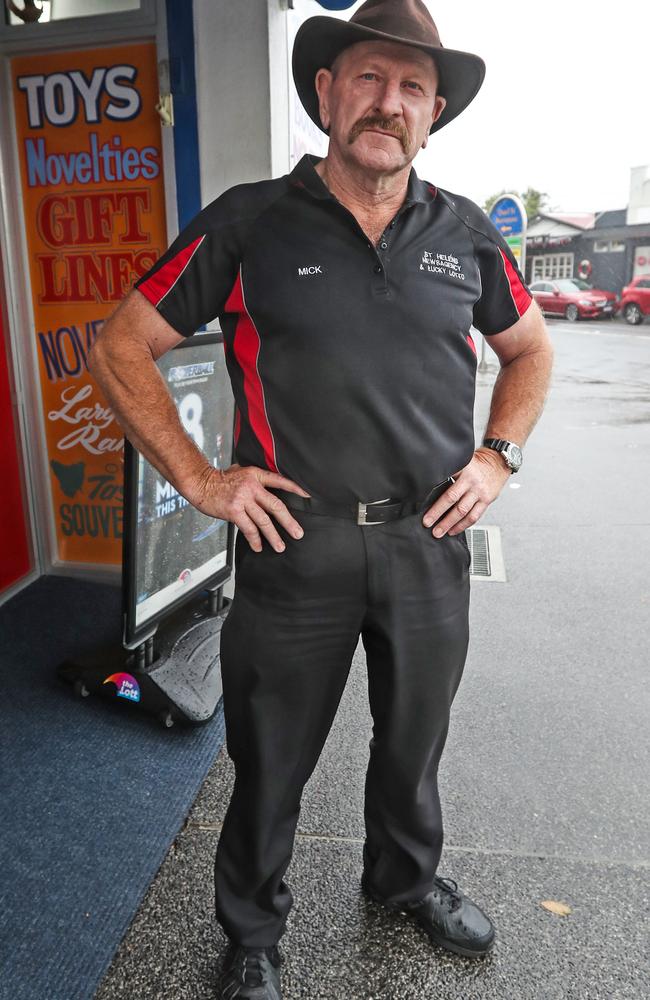Local government minster vows there will be no forced mergers of Tasmanian councils
There will be no forced council amalgamations, the local government minister says, as the sector cautiously welcomed a report suggesting the number of councils in Tasmania should be reduced.

Tasmania
Don't miss out on the headlines from Tasmania. Followed categories will be added to My News.
There will be no forced council amalgamations, the local government minister says, as the sector cautiously welcomed a report suggesting the number of councils in Tasmania should be reduced.
The Future of Local Government Review’s final report released on Friday made 37 recommendations including preparing the case for council amalgamations and greater sharing of systems and services.
Minister for Local Government Nic Street said there was much consultation to be done on the report and its recommendations.
“The most important thing to make clear today is that no decisions have been made,” he said.
“When we set this process up using the legislation that we did, it required that at the end of the process we consult with any council who is going to be affected by recommendations that we take forward.
“Because of the broad scope of some of those recommendations, that effectively means all 29 councils could be affected.
“We won’t take anything forward that isn’t in the best interests of both the councils and the communities that they serve.”
Local Government Association of Tasmania President Mick Tucker welcomed the extended consultation period on the report – which stretches to the end of February.
“Councils will work through the recommendations over the next few months to help inform the government on what the sectors priorities are going forward,” he said.
“It is essential the implementation of the priority reforms is a genuine partnership between the local government sector and the state government.

“This must include appropriate support for our sector to support implementation, as it must not be forgotten that the important day-to-day work of councils continues alongside these reforms.”
Hobart Lord Mayor Anna Reynolds said her council would consider the report – with the possibility of a merger with neighbouring Glenorchy being an option.
“Certainly we are neighbouring councils and it’d be fabulous to see the two cities joined together by a wonderful light rail system so maybe we could say to the state government will amalgamate if you give us a fabulous new light rail system to connect the cities,” she said.
“There has to be something in it for the community otherwise, they’ll just sort of shifting around letterheads and office chairs, what is the business case and what will it deliver for the residents?”
Glenorchy Mayor Bec Thomas said her council was supportive of reform – where it delivered improved outcomes and service delivery.
“A merger between Hobart City Council and Glenorchy City Council has long been mooted, arguably due to the proximity of the two councils,” she said.
“However, this discussion needs to be about much more than just lines on maps – it needs to be a genuine examination of benefits and outcomes for residents.
“Glenorchy City Council and Hobart City Council already have a close working relationship and are actively exploring ways we can continue to work with increased synergy for the benefits of our ratepayers in both municipal areas.”
Kingborough Mayor Paula Wriedt said her council was open to a merger with the neighbouring Huon Valley Council.
“Kingborough Council supports the board’s proposed boundary adjustment which would involve a merger with Huon Council and ourselves,” she said.
“As a council, we are also open to the potential of Taroona being added into the Hobart City catchment area.
“This scenario would increase our population base to approximately 57,000 residents, enabling economies of scale and better service delivery for our residents.”
The union representing local government workers demanded the government rule out both forced amalgamations and the forced centralisation of services.
“Despite failure of the consultation process, council workers and communities across the state were very clear in their opposition to council mergers,” Australian Services Union secretary Lisa Darmanin said.
“Requiring councils to participate in centralised delivery of service will mean the unique needs of smaller communities will be ignored and he economic ballast that council employment provides across the state will disappear.
“Forced amalgamations of Tasmanian councils and the centralisation of services risks everything and solves nothing.“
Labor’s local government spokesman Luke Edmunds said the government had sent mixed messages.
“In July, Jeremy Rockliff said he’d dumped forced council mergers in the wake of his $50,000 taxpayer-funded, Font PR ‘reset’.
“Today his $3m Future of Local Government report includes the shock announcement of ‘mandated shared services’ and new council border mapping.
“Premier Rockliff needs to confirm whether he’s sticking with his first backflip or whether he’s going to add a reverse merger backflip to his impressive gymnastics routine.”





